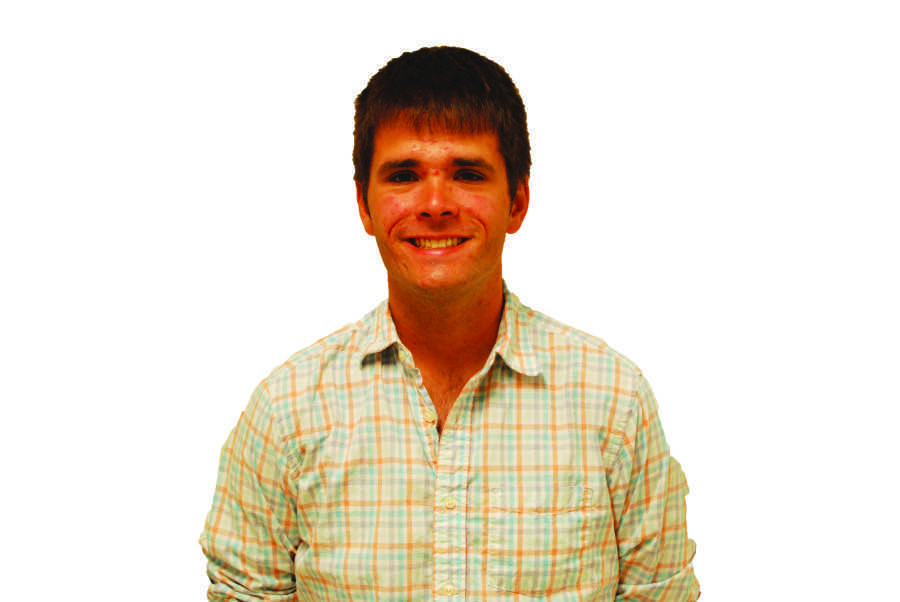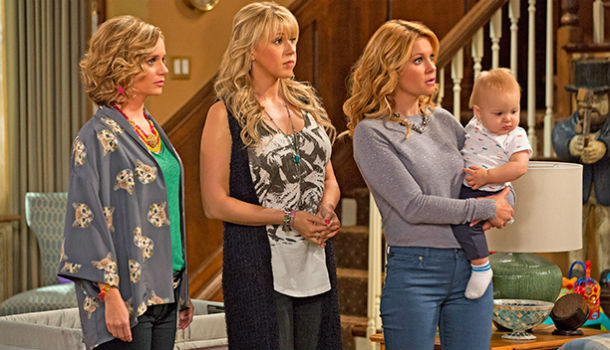On Monday evening, April 23, 2007, 55 to 85 students were locked out of the Weasler Auditorium, which was filled to capacity for Jodie Sweetin’s appearance. The Weasler, usually empty, received a pleasant surprise when the capacity maxed out 20 minutes before the speech.
One of those students was the only recovering methamphetamine addict on campus.
Chad, an alumnus of the College of Arts & Sciences, showed up at the Weasler at 6:45 p.m. to snag front row seats to listen to his idol, Jodie Sweetin, speak about her recent triumph over methamphetamine.
Chad, like every other American born between 1980 and 1990, grew up with “Full House.”
“I started using in 1995 when Warner Bros. originally canceled the show. I didn’t know how to cope. The Tanners were my real family. Joey made me laugh at him, Uncle Jesse practically gave me my first beer, and Danny, well, he taught me how to never over-starch a perfectly good pair of pants,” he said, lost in sweet reverie.
Sweetin played the delightfully juiced-up-on-life Stephanie Tanner, one of “Full House’s” nine American icons (if you count Kimmy Gibbler as one of the Tanner family).
In the 1990s, every family had three items on the coffee table in the living room: a Bible, a Bud Light coaster and a television-clicker that got you to “Full House.” American youth never had to face their own problems. “Tanner Town” did it for them.
If you were getting beat up at school, it was probably by some kid who could easily be Uncle Jesse’s son. Then you understood why you were getting beat up.
If you were having troubles budding into puberty and dating, the Tanner family seethed exemplary stability and rationality that encouraged you to emulate and self-medicate your crisis.
This generation’s single most defining moment was when Uncle Jesse almost died preparing to do a wheelie on his motorcycle on the guardrail of a high-rise parking garage.
Chad suffered post-traumatic stress disorder, along with every other kid from the ‘90s, after the show’s cancellation.
“I never thought of the dangers of meth. I always assumed Kimmy Gibler was a user,” he said. “I mean come on, she had a pet ostrich.”
Chad experienced his first life threatening overdose in 2005, the same year as Sweetin’s crude awakening.
“I remember my first overdose,” he said, recalling his bad trip. “Stephanie, Michelle and Uncle Jesse appeared before me on a three-person tandem bike. Stephanie said, ‘How rude,’ Uncle Jesse said, ‘Have mercy,’ and Michelle, wagging her finger, said, ‘You’re in big trouble mister!’”
Chad paused to gather himself.
“I felt so ashamed. I had let my family down. I was better than that and decided to stop,” Chad said.
When Chad found out Sweetin had struggled with similar problems and was coming to Marquette to speak about it, he jumped up and down three times. However, Chad’s elation would eventually become smothered like a half-finished cigarette.
The Weasler Auditorium, for once, had reached capacity — without Chad.
The auditorium filled with sober, non-recovering addicts just wanting to hear about Uncle Jesse, the reality of Joey’s comedy career and the current relationship status between Viper and D.J. (Facebook said it was complicated).
“It felt like I had just been kicked in the throat by Steven Seagal. I didn’t wait around like the rest of those locked out. I went over and watched the interchange construction as the sun went down, contemplating the ramifications of the relapse that was about to ensue due to the night’s misfortunes,” Chad said.
One could easily ask oneself “What ever happened to predictability? The milk man, the paper boy, evening TV? You miss your old familiar friends waiting just around the bend. Everywhere you look (everywhere), there’s a heart (there’s a heart), a hand to hold on to, there’s a face of somebody who needs you. When you’re lost out there and you’re all alone.”
And now Sweetin’s confession? Ironic, Chad, we know.
Charlie Puckett is a senior in the College of Arts & Sciences



